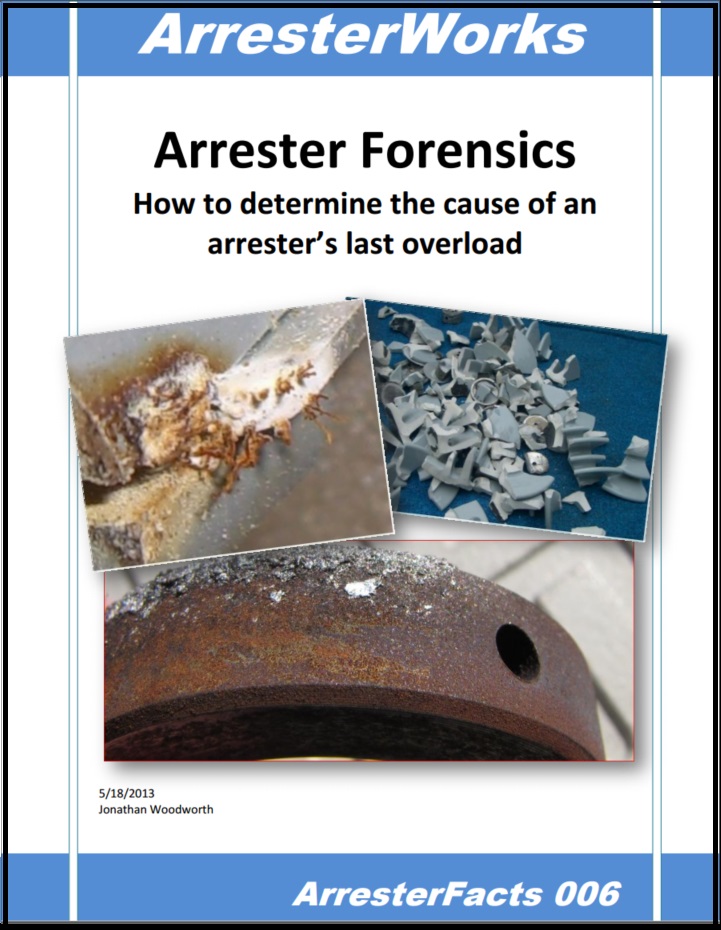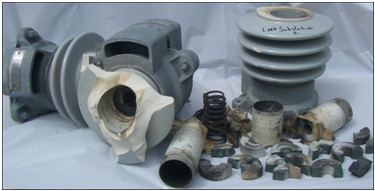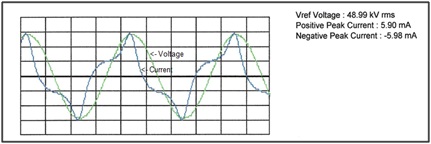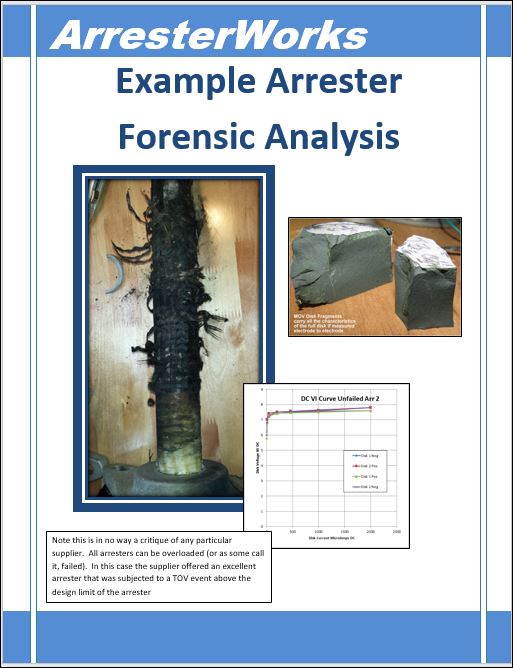Arrester Forensics ...

|
Discovering the root cause
|
Forensics in this case means the evaluation of an arrester or arrester components to determine the reason why it or its companion arrester has become inoperative.
A single arrester failure may not be cause for concern to the stake holders, however if there are multiple failures or a failure that appear to be without cause, it might be time to have an arrester forensic analysis done. Often times the underlying reason for an analysis is that several arresters of similar style have experienced a terminal overload and the organization requesting the analysis needs to know if the problem is isolated or system wide. If it is a system wide issue and is indeed a failure issue, then perhaps a different mitigation strategy would be used than if it was an isolated event. Sometimes the purpose of an analysis is to determine if there is a power system issue that is not related to the arresters, but since the arresters are overvoltage protectors, they result in a terminal overload. The cost of a misdiagnosis can be very expensive. If the cause of the overload is incorrectly identified as a system issue, literally millions of dollars can be spent trying to correct the wrong thing.
ArresterWorks will analyze your arrester, or remains of a failed arrester, and determine the reason for its demise. Upon completion a comprehensive report will be providing to the customer with detailed information on all the steps taken as part of the analysis and the results found. Once the report has been reviewed by the customer a follow-up Q&A session is schedule to further the understanding of the failure.
Contact Jonathan Woodworth at 716 307 2431 or at jjwoodworth@arresterworks.com for more information or to make arrangements for a quote.
Process Methods and Procedures
- In depth examination of the available parts.
- Close-up photography and microscopic photography to identify cause of failure.
- Gas analysis of unfailed partner arresters if available.
- Analysis of electrical characteristics of available disks. Any disk can be analyzed no matter how damaged.
- Leak checking using the appropriate method (HMS, vacuum, die penetrate, pressure decay) of failed and unfailed partner arresters
- In depth review of potential causes of failure and rationale of which ones are possible and which
ones are not. The list includes.
Moisture Ingress Improper MCOV or TOV Rating Excessive Partial Discharge Unbalanced Electric Field Lightning Misalignment of Disk Column: Temporary Overvoltage Improper Spring Pressure Switching Surge Overload Mechanical Stress Aging of Disks Burrs External Contamination Insufficient Dielectric Strength - Arresters that can be Analyzed: Porcelain 3-500kV, Polymer 3-500kV, Underoil, Elbow, Secondary.



Contact Jonathan Woodworth at 716 307 2431 or at jjwoodworth@arresterworks.com for more information or to make arrangements for a quote.
